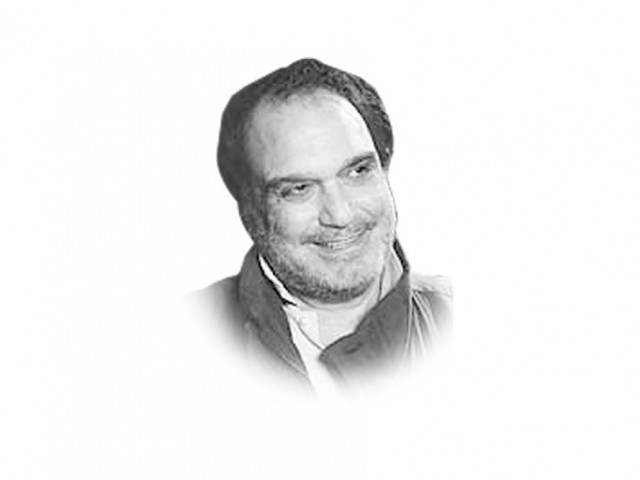General Kayani’s war
A series of decisions taken by him tilted the country into dangerous paranoia.

General Kayani’s war
This came as a bit of a shock to a country where most people think that the war against terrorism was not Pakistan’s war and that it was America’s war in which Pakistan was playing a self-damaging ancillary role. Most TV anchors reacted angrily, stubbornly clinging to the narrative made current by General Kayani’s own subordinates in the ISI.
The narrative presided over earlier by the Pakistan Army was that America was in Afghanistan seeking a toehold in the region to accomplish its hegemonic ends. It was opposed to Pakistan’s nuclear arsenal and was busy in tandem with India and Israel to plan its elimination. General Kayani once told a gathering of editors that he was wedded to the doctrine of strategic depth in Afghanistan to better confront India in case of conflict.
A series of decisions taken by him tilted the country into dangerous paranoia. Not only is the army openly in exclusive charge of the country’s foreign and security policy, it is clearly the real power in Pakistan behind the facade of democracy. General Kayani is thus the most powerful man in the country, paradoxically enjoying the reputation of an army chief who believes in non-interference in the democratic process.
His decisions were populist rather than realistic. His Independence Day pronouncements were realistic but they also revealed these decisions to be ill-suited to a state in deep internal crisis. His populist decisions were front-loaded with defiant challenge but were always followed by realistic retreat that appeared like cowardice to people:
1) People felt humiliated after he released a CIA contractor, Raymond Davis, guilty of killing two boys in Lahore in January 2011, after letting them believe that Davis would be hanged; 2) In May 2011, he decided to feel unrealistically enraged by the killing of Osama bin Laden in Abbottabad and turned on the government in power after it took the correct posture; and 3) After the Salala incident in November 2011, he flew off the handle and stopped the Nato supply route through Pakistan.
The judicial commission on Osama’s death predictably got snarled up in facts that are too unsavoury to reveal. The retreat on the Nato route was mishandled by the GHQ, which let parliament fly off the handle, riding on delusions of sovereignty in foreign policy. The ISI built up the anti-drone campaign only to see the parliamentary chest-thumping on the subject ignored in Washington.
Going to the Supreme Court during the memogate case was a mistake, as was proved by the unpleasant denouement, which turned the nation against the man the ISI was relying on for evidence needed to convict President Asif Ali Zardari and his cohorts of treason entailing death sentence.
More bad decisions were taken. General Kayani let the erstwhile proxy warriors of the army flex their muscles even after solid evidence of their acts of terrorism outside Pakistan. He let the Difa-e-Pakistan Council loose on the country after his own volte-face on the Nato route. A Chapter Seven UN Security Council resolution on counterterrorism stares Pakistan in the face.
US Defence Secretary Leon Panetta says that Pakistan has committed itself to invading North Waziristan but without attacking the Haqqani network, meaning that drones could go on attacking. General Kayani says he is not going to North Waziristan at all after a brainwashed nation has rejected his Abbottabad assertion that the war against terrorism was Pakistan’s own.
Published in The Express Tribune, August 26th, 2012.















COMMENTS
Comments are moderated and generally will be posted if they are on-topic and not abusive.
For more information, please see our Comments FAQ